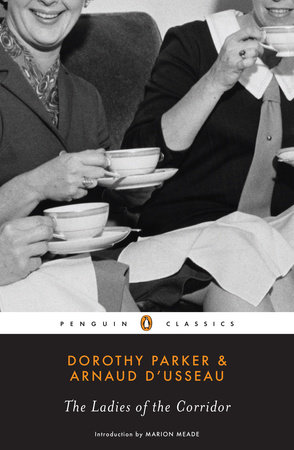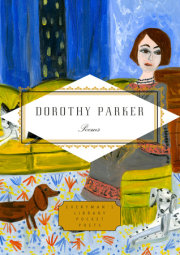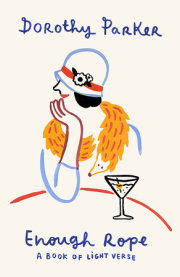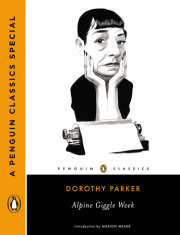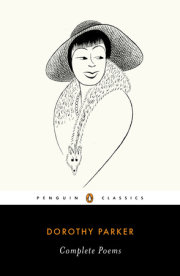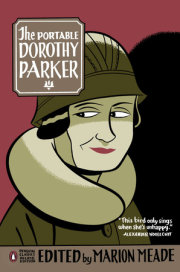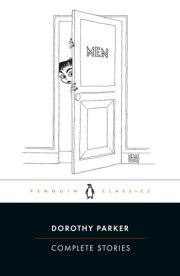Dorothy Parker was born in West End, New Jersey, in 1893 and grew up in New York, attending a Catholic convent school and Miss Dana's School in Morristown, New Jersey. In 1916 she sold some of her poetry to the editor of
Vogue and was subsequently given an editorial position at the magazine, writing captions for fashion photographs and drawings. Parker then became a drama critic at
Vanity Fair and the central figure of the celebrated Algonquin Round Table.
Famous for her spoken wit, she showed the same trenchant commentary in her book reviews for
The New Yorker and
Esquire and in her poems and sketches. Her collections of poems include
Not So Deep as a Well and
Enough Rope, which became a bestseller, and her collections of stories include
Here Lies. Parker also collaborated with Elmer Rice on a play,
Close Harmony, and with Arnaud d'Usseau on the play
The Ladies of the Corridor. She had two Broadway productions written about her and was portrayed as a character in a third. Her cynicism and the concentration of her judgements were famous, and she has been closely associated with modern urbane humor.
Her first husband was Edwin Pond Parker II, and although they were divorced some years later, she continued to use his name, which she much preferred to her own of Rothschild. Parker's second husband was actor-writer Alan Campbell. They went to Hollywood as a writing team and had a tempestuous marriage until his death in 1963, when she returned to New York. Parker died in 1967.
View titles by Dorothy Parker

